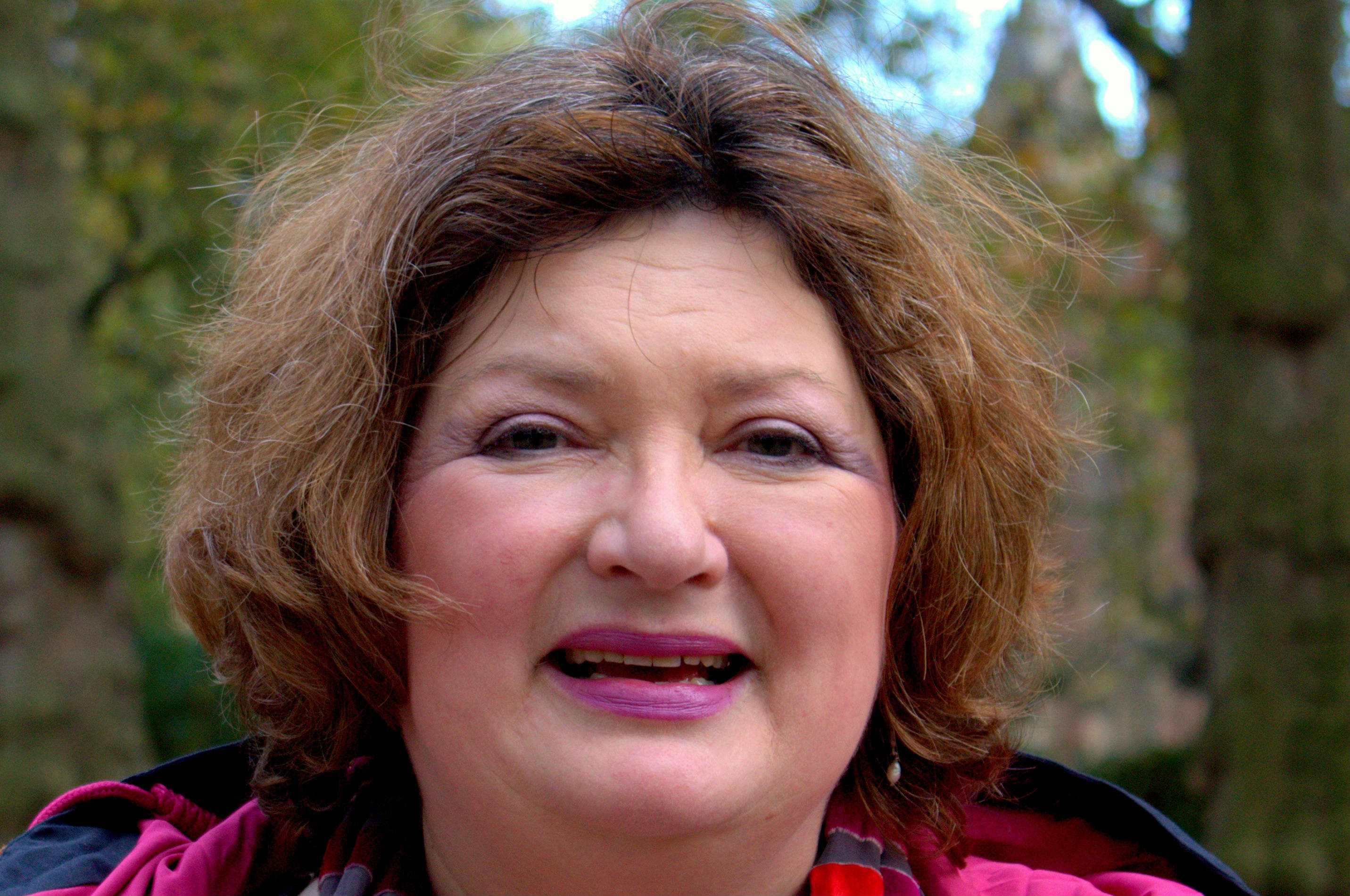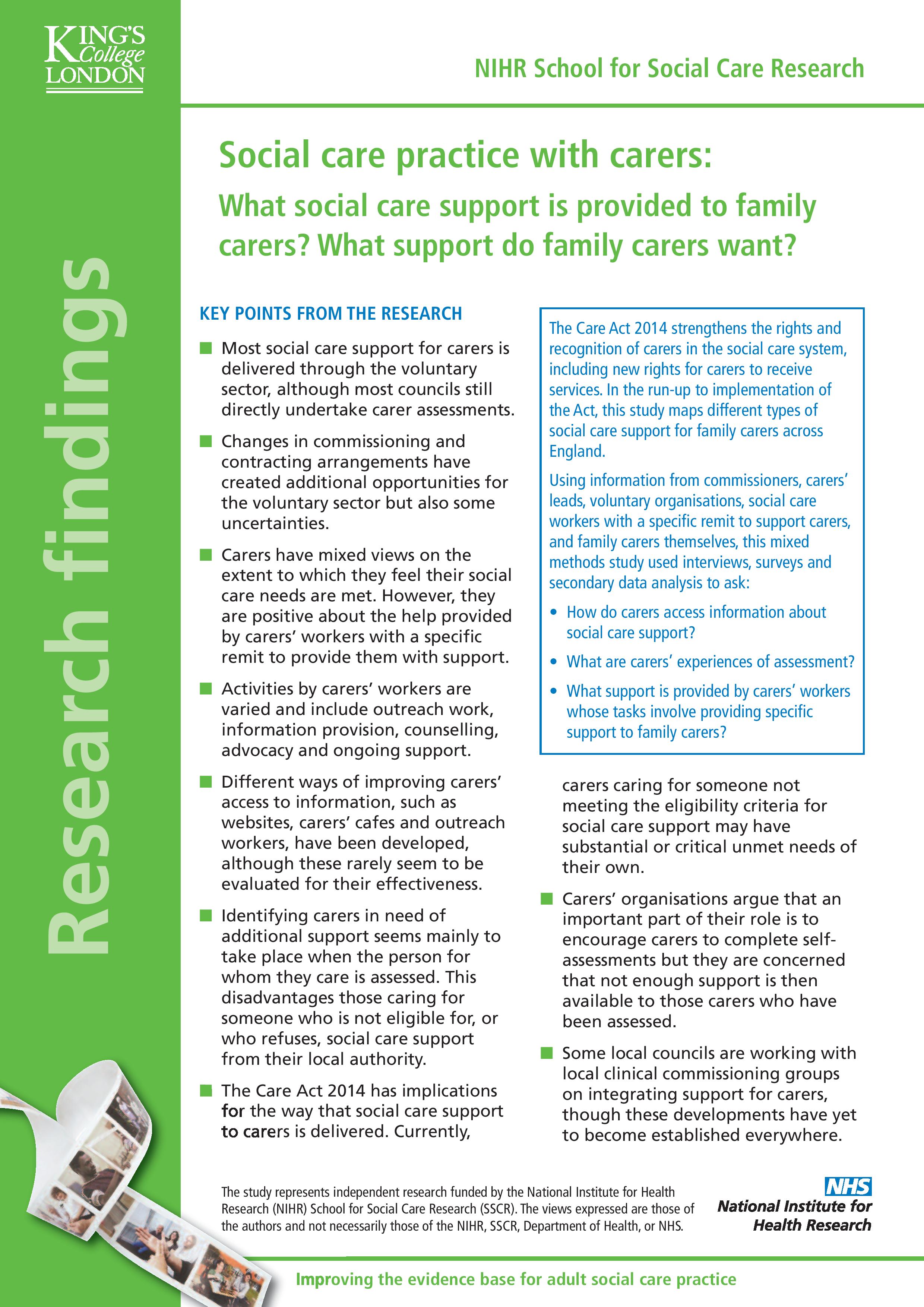 Jo Moriarty is Research Fellow and Deputy Director of the Social Care Workforce Research Unit in the Policy Institute at King’s. This month sees the publication of the Research Findings of a project she led on Social care practice with carers. (736 words)
Jo Moriarty is Research Fellow and Deputy Director of the Social Care Workforce Research Unit in the Policy Institute at King’s. This month sees the publication of the Research Findings of a project she led on Social care practice with carers. (736 words)
I’ve lost the man that I fell in love with and I now just feel like a full time nurse. (Nicola-Jane, Carer08)
Research about family carers often focuses on the problems they face. However, at a time when increases in social care funding are not enough to meet the additional demand for services and when it is expected that the gap between the number of people needing support and the number of people able to support them is widening, we need to focus not just on problems but on finding better ways to support the six and half million people providing unpaid help to members of their family and friends in the United Kingdom.
 This was why we were so pleased to receive funding from the National Institute for Health Research School for Social Care Research for our project looking at Social Care Practice with Carers. We wanted to find out what support local councils were providing for carers and what carers, people whose job description included a remit to support family carers (carers workers), voluntary organisations supporting family carers, and those commissioning social care services thought about this support.
This was why we were so pleased to receive funding from the National Institute for Health Research School for Social Care Research for our project looking at Social Care Practice with Carers. We wanted to find out what support local councils were providing for carers and what carers, people whose job description included a remit to support family carers (carers workers), voluntary organisations supporting family carers, and those commissioning social care services thought about this support.
Now that the Care Act 2014, which places the needs of people using services and carers on the same footing, and the associated guidance have been published, if we had a chance to do an elevator pitch of our findings to a Director of Adult Social Care, these are the three points we’d like to get across:
- Carers don’t want just any information; they want timely and accurate information that is relevant to them. It’s vital not just to produce information but to identify how effective it is. Do certain groups seem to miss out in terms of getting hold of it? What types of publicity and formats seem to be most successful?
- Sometimes a direct payment to buy in additional support for the person cared for may be all that a carer needs. At other times, it is not enough. Carers may need additional emotional support or extra support to access social activities. Caring can take its toll emotionally and socially as well as physically.
- Although practitioners with a specific remit to support carers, such as Carer Support Workers or Carer Advocacy Workers, have been around for some time, their role has been under-researched. Funding for these posts is often time limited and rather uncertain but we found that carers really appreciated the different ways in which these workers supported them, especially in terms of their relationships with individual workers and the organisations for which they worked. This was an exploratory study, but our findings suggested that there is scope for future research exploring this topic in more detail.
Returning to the opening of this blog, what support did Nicola-Jane have to help her feel less like a nurse and more like a spouse? Nicola-Jane valued the help she got from her local carers centre. Having someone she could telephone who would listen to her whenever she was upset and felt stressed made a difference to her. She also enjoyed going out for social events with other carers. The occupational therapist had helped her with aids and adaptations for the house that made it easier to take on the physical aspects of caring, but her husband was adamant that he did not want anyone other than her to help with his personal care.
Nicola-Jane asked why even though she and her husband saw so many different health and social care professionals, none of them had ever helped her talk through with her husband why she wanted a break from the physical aspects of caring for him. She also wanted to see local councils take on a broader role in making lives easier for carers and people with disabilities. This is very much in the spirit of the Care Act 2014. She suggested that when granting planning permission for public buildings, local councils could help make people’s lives easier by ensuring that disabled lavatories were large enough to accommodate space for another person if someone needed the assistance of another person to use the lavatory. Why, she asked, was there no space to spread out a change of clothes and fresh incontinence pads? She ended the interview with an important reminder for all social and health care professionals to ‘take note of the people that are left to deal with the other 23 hours of the day.’
Jo Moriarty is Deputy Director of the Social Care Workforce Research Unit in the Policy Institute at King’s. She tweets as @Aspirantdiva
Social Care Practice with Carers project page | Research Findings (published November 2014)